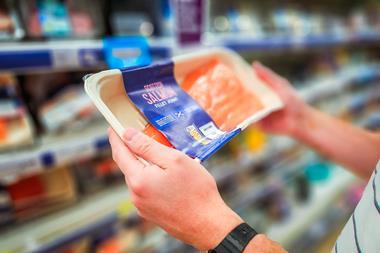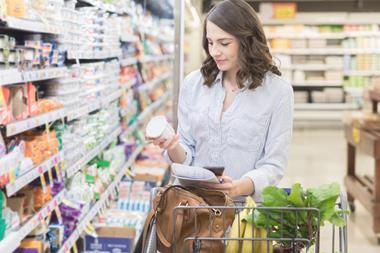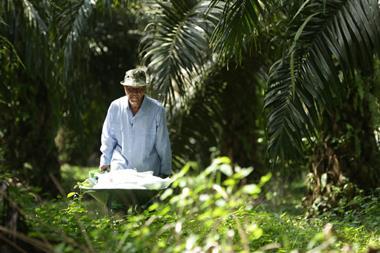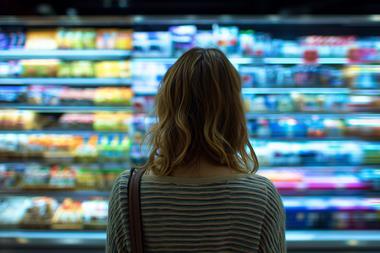With today’s consumers firmly focused on environmental issues, food supply chain businesses need to ensure their sustainability credentials are squeaky clean. But with mixed messages out there, it’s a challenge that needs strong traceability ethics – and the use of technology – to resolve, says SAP
Anyone who has ignored David Attenborough’s pleas for help in recent years will find that the United Nations’ (UN’s) latest Intergovernmental Panel on Climate Change (IPCC) report, published earlier this month, challenges any doubts that the planet is in crisis, as increased global temperatures, extreme rainfall and rising sea levels dominate its headlines.
Combine this 3,949-page document, which provides some pretty stark reading and statistics, with the fact that the UN predicts there will be 10 billion people living on planet earth by 2050, all in need of feeding, and there is an undeniable problem facing humanity.
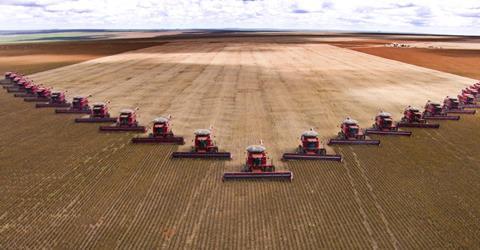
Meanwhile, the food supply chain, widely touted as one of the biggest contributors to greenhouse gas emissions, is likely to be severely impacted if ocean fish and farming land are not protected sufficiently, potentially leading to food shortages and further food inequality.
Yet it’s clear that consumers do want to make a difference. Research from YouGov reveals consumers worldwide are willing to pay more to address sustainability concerns, with 57% of UK shoppers happy to put their money where their mouth is and cough up extra cash for more environmentally friendly products. Equally, businesses around the world are making pledges to help the environment, with net zero promises a key strategy to help the planet stay under the 1.5°C “safe” global warming limit.
“It makes business sense for retailers and brands to assist environmentally conscious shoppers in making sustainable choices as they spend”
While big businesses should shoulder some responsibility for helping to prevent climate change, it also makes real business sense for retailers and brands to assist environmentally conscious shoppers in making sustainable choices as they spend their hard-earned cash.
With trends like veganism, hyper-local shopping, plastic-free, bulk-buying and seasonal eating emerging, businesses need to be agile and meet consumer demand – even more so when the future of the planet is in question.
Uninformed decisions
What makes these choices difficult, however, is that the sustainability debate is full of contradictions – and not just the politically-charged argument over whether global warming is real or not; it’s the smaller day-to-day decisions that are made as both consumers and businesses alike try to figure out the best course of action.
Take shopping bags, for example: grocers were mandated by the government to start charging for plastic bags to put shoppers off mindlessly grabbing them at the till point. But some articles state that the fancy new cotton tote bags, intended to replace them, require so much water to manufacture that they need to be used thousands of times to make them greener than plastic.
It’s an even bigger minefield when it comes to the food consumers choose to eat: for example, quinoa has been marketed as the protein-powered superfood favoured by those avoiding meat, until the media headlines suggest that it is negatively impacting the Peruvian farming communities who grow the crop – and that’s before the airmiles flown to transport it across the world are calculated.
High-profile and controversial documentaries are also muddying the waters for consumers, making their purchase decisions, without full traceability, even more complex. For example, a recent controversial Netflix documentary, exploring the impacts of overfishing, questioned the accuracy behind certain certification labels on canned fish, which assure consumers that they are not harming dolphins for the sake of their lunchtime tuna mayo. While some of the documentary’s facts have been questioned, programmes like this (and the David Attenborough documentaries) hit an emotional nerve. They may cause some consumers to turn to veganism in their outrage, but many will at least question where the food on their plate comes from.
The need for accurate data
This hugely complicated and emotionally charged issue clearly needs thorough research, understanding and, ultimately, facts and data to reassure consumers that they are making the right choices. After all, when decisions are this hard to make, people can be tempted to simply ignore the problem and carry on with old habits.
As such, traceability in the supply chain can reassure customers, improve food safety, and is critical in how businesses move forward with their ambitions to help turn around the climate crisis. And this is where technology can play a crucial role in harnessing accurate data to understand exactly the origins and journey of what consumers eat.
From farm to plate
Secure technologies like blockchain and a number of other SAP initiatives, such as the company’s IoT-enabled Track & Trace solution – which is part of SAP Logistics Business Network – monitor information from business processes and milestones as the product in question makes its way from farm to shop shelf.
Take Bumble Bee Foods, which is using SAP Cloud Platform Blockchain service to trace the journey of yellowfin tuna from the Indonesian ocean to the dinner table. Every piece of fish is tracked and enters a secure blockchain, with the information available to retailers, restaurants and end-consumers.
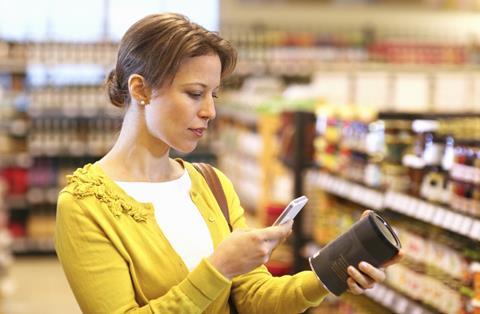
Far beyond slapping a sticker with a dolphin-friendly logo on the side of a can of tuna, Bumble Bee Foods’ consumers can scan the product with their smartphone in the supermarket aisles and receive information about exactly how and where their tuna was fished. Information on the fisherman, how long the trip lasted, the status of the tuna population on the day and whether there was any by-catch, can also be surfaced and complemented with videos and even recipe recommendations. This information can also help speed up product recall in the event of a sickness outbreak, as the business knows exactly where each individual fish has ended up.
Naturipe Farms is also trialling technology to digitally track berries grown around the world, and the information stored securely on the blockchain rather than handwritten documents has seen a reduction in delays at customs due to lack of human error.
The QR codes tell the story of exactly where the fruit is picked and, by tracking all this information, data can be fed back to the business to help manage the growing conditions, such as humidity, fertilisation and irrigation to increased future crop yields. Naturipe is also using machine learning to analyse weather patterns and harvest data and use predictive analytics to better forecast the future.
Product traceability will become more commonplace in the coming years, with informed customers scanning QR codes becoming as normalised as checking nutritional information on food packaging. But clearly this technology goes beyond empowering the consumer; if businesses can use this information to make more efficient decisions, to create more food, more sustainably, then perhaps they can make a difference as people around the globe navigate the challenging times ahead.
If you would like more information about any of these solutions, please contact one of our experts:
Fatih Kayadelen
Digital Supply Chain Account Director at SAP
fatih.kayadelen@sap.com
Shaid Latif
Industry Advisor Expert at SAP
shaid.latif@sap.com
Elif Kuralay
Senior Industry Advisor at SAP
elif.kuralay@sap.com
About SAP
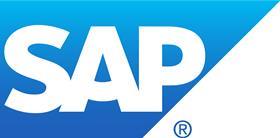
By 2025, companies that deliver through automation will lead the way. SAP solutions enable consumer products companies to be responsive and provide personal, secure, and simple shopping experiences. To find out more, visit our website.
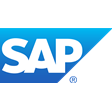
By 2025, companies that deliver through automation will lead the way. SAP solutions enable consumer products companies to be responsive and provide personal, secure, and simple shopping experiences.
To find out more, please visit https://www.sap.com
View full Profile
















